Humans need things to happen faster than the Earth does, but the Earth dictates what we can do.
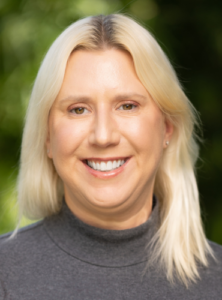
Photo: Victoria Petryshyn
Professor Victoria Petryshyn’s work deals with some of the biggest questions there are in life because they are about life itself – from rapid evolution to mass extinctions, and all things in-between. As a geobiologist, Petryshyn’s investigations of Earth’s environmental conditions and their impact on organisms have led to career highlights such as aiding NASA’s quest to find evidence of extraterrestrial life on Mars and serving as the Chair of the Geological Society of America’s Geomicrobiology Division. After earning her PhD in geology from the University of Southern California, Petryshyn held a postdoctoral research position in isotope geochemistry at the University of California, Los Angeles, before moving on to a research fellowship at the European Institute of Marine Science in France. As a professor, she helps students understand the intricacies of the global energy landscape and the persistence of climate change’s impact on Earth throughout its history.
In addition to teaching, Petryshyn also serves as the Faculty Coordinator for the Online Master of Sustainability Management program. As a leader in the program, she is passionate about equipping students with the tools and knowledge necessary to go out and make a difference, whether that be through a fulfilling career within the sustainability industry or at any company where they can empower positive change.
Below, Professor Petryshyn discusses the evolving attitudes towards sustainability, the importance of education especially in the face of climate change, and the skills and knowledge necessary for future leaders in sustainability.
What inspired you to delve into the field of geobiology, and how has your perspective on Earth’s history evolved throughout your career?
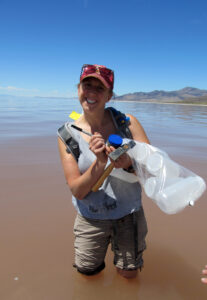
Photo courtesy: Victoria Petryshyn
I loved being outside! I knew I wanted to be in the sciences but didn’t want to be in a lab all day. That is how I came to geology. But while studying, it became clear to me that I really wanted to answer the BIG questions – when did life start on Earth? How does life originate? Is there life on other planets? These things sparked my interest, but I learned to love the details of them. So now I look at things like “when did oxygen show up on Earth?” And “what environmental conditions cause mass die offs of life, or rapid evolution?” These questions still drive me- but more and more I look at the human aspect of all of it. Geobiology, which looks at the interaction of the Earth and life, is interesting because it operates on fundamentally different timescales. The Geo is millions to billions of years. While the ‘Bio’ part can be minutes to hours to years. Integrating those two different rates into something meaningful has changed the way I look at both Earth Sciences and Sustainability. Humans need things to happen faster than the Earth does, but the Earth dictates what we can do.
In your research, you’ve explored Earth’s climate during pivotal epochs. Could you share a particularly surprising finding about our planet’s past environmental conditions?
One thing that has become very clear to me, if we are being honest, is that no matter what humans do, our planet will be fine. It will change, it will evolve. Over millions or billions of years, biodiversity will recover, climate will stabilize into something else. Our planet 3 billion years ago would be unrecognizable to us. 3 billion years in the future it will likely also be unrecognizable to us. It was fine back then, and it will be fine in the future. Just different. Humans, however? We tolerate only a certain range of environments. We might not be fine. Times of rapid CO2 emission, temperature rise, ocean acidification/anoxia- usually these conditions rise over thousands to millions of years. These rises, which often are accompanied by major mass extinctions, happened at a rate MUCH slower than what humans are currently doing to the planet.
Do you have any guiding principles that inform how you approach your work?
As scientists, most of what any of us ‘discover’ will likely later be shown to be untrue, or at the very least, misinterpreted by us. Because of this, I am very flexible with failure and ok with being wrong! I know that as long as my observations stand the test of time, I did my job. Interpretations will always change with new data- and that is OK. It helps keep me grounded and helps me ground students in turn. It’s ok to be wrong- its ok to change your mind. It’s ok to take in new information and update an idea. It’s how things SHOULD work!
How does your research inform our understanding of current climate change trends, and what role do you believe education plays in combating it?
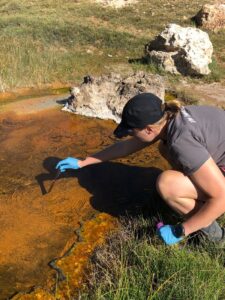
Photo courtesy: Victoria Petryshyn
My research focuses a lot on rates. How does what happened in the past inform what is happening now? If we can find a rock from a crucial time interval, we can read it like a book to get information. Rocks contain all kinds of chemical information about the environment they formed in. Sometimes, if we are clever, we can look at the events surrounding a mass extinction and ask ‘what is the kill mechanism?’ By this, I mean that rising CO2 causes a cascade of effects. Temperature rise, lowering of ocean pH, loss of dissolved oxygen from the oceans, enhanced rock weathering, enhanced water cycle, reef collapse, and many more. Which of these will be hardest for animals to cope with? What is ‘the thing’ that is actually too much, and causes mass extinction? We can see the evidence in many past mass extinctions that anoxia may have played the most important role. It is of course important to mention that the over-arching cause is STILL rapid CO2 rise.
I believe education is incredibly important. It is very easy for humans to look away from these problems. We all have our own. And it seems so large- what can we do as individuals to fight it? But it has to be talked about. USC students, in particular, will be in positions to make a difference in our society. They need to be well-versed in the short- and long-term effects of climate change. Plus, there are opportunities to be had. Crises also breed innovation. And as we keep delaying massive efforts on climate change, we will very much need that innovation in the coming decades.
In what ways have you seen sustainability management change over your tenure in the industry? And how do you predict the industry will change in the future?
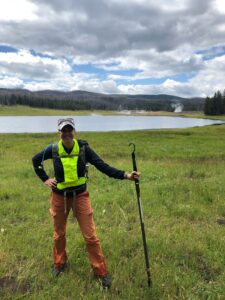
Photo courtesy: Victoria Petryshyn
The biggest thing is that people are serious about it now! For a long time, sustainability seemed to be lip service. Now, enough is changing, and enough sustainability-minded individuals are entering the workforce, that real strides can be made. Rather than a company posting something on IG for Earth Day and calling it good, companies are starting to assess their supply chains, or look at the lifecycles of their products. People are starting to figure out that you can be profitable while being sustainable. I expect that as climate change moves from something in the back of our minds, to something we can’t ignore, every business will need to tackle real sustainability challenges.
What skills and knowledge do you emphasize as essential for future leaders in sustainability?
The ability to communicate is so important! You have to be able to break down topics from multiple points of view- to a diverse array of shareholders. For instance- If you are looking at an energy problem: You yourself need to understand the basics of energy, energy grids, how much you pay for the energy and why etc. Then you need to understand the pros and cons of switching to say, a more renewable form. Is it more expensive? Does it require a large initial investment? What is the long-term return on it? How often will it be replaced? Will positive press from it enhance sales to your core demographic? And then you need to understand the needs of the company in order to sell the solution. Then you have to be able to explain the pros and cons to others. So being concise yet accurate yet persuasive is your goal- and that takes practice.
As the Faculty Coordinator, what is your vision for the Master of Sustainability Management program, and how do you plan to achieve it?
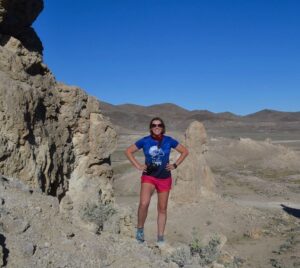
Photo courtesy: Victoria Petryshyn
Above all else, we want this program to be useful to students. It should open doors in their careers and give them the tools to go and help reshape their companies into more sustainable places. Or, it should give them the abilities to go land their dream job in sustainability. In order to achieve this, we will be constantly re-assessing coursework, to make sure it is up to date. Students will also get instruction from both academics and practitioners. This will not be a program that just gives students theory- it will be grounded in real world results. Students will learn from people who did the things they want to do.
What makes you excited to teach the next generation of students at USC Dornsife?
Often, all the news we seem to hear is negative. It can feel hard to simply exist in this world, trying to be a good person. I am excited to teach the next generation of students because there is so much hopeful stuff out there. There ARE solutions to these problems, and I get to work with caring, engaged, intelligent students who want to put those solutions into practice.
Learn more about the Online Master of Sustainability Management program.



